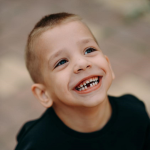I’m Scared of My Autistic Son
The stereotypical image of an autistic child is a withdrawn, uncommunicative, and calm individual. Such children make up the majority of patients. However, parents also sometimes state, ‘I’m afraid of my autistic child’.
Behaviour in an autistic child that can cause fear in parents:
- Lack of emotional contact with adults or interactions that are outside the ranks of others’ traditional behaviour
- Field forms of behaviour in a particular location, such as aimlessly walking around the same room
- Aggressive behaviour towards relatives and strangers or attempts to cause physical harm to oneself
- Ignoring the simple requests of family members and caregivers or inadequate responses to requests
- Unreasonably conflictual behaviour
- Over-attachment to mother, constant demand for attention
- Prevalence of academic words and expressions in everyday vocabulary
- Commitment to one occupation, which is not always harmless
- Tendency to ritual or ceremonial forms of behaviour
- Paradoxical combination of fearfulness and anxiety with the need to relive traumatic events
Aggression in autistic children is common, and both the child and their family members suffer as a result. Such behaviour is not only hard to understand but also dangerous. Therefore, it is not surprising that it causes parental concern, especially when it comes to a teenager or young person. Hyperactivity may also accompany such behavior.
The positive side of abnormal behaviour in an autistic child
The symptoms listed above are typical for the third and fourth groups in the development of childhood autism. There are four in total, and the first and second are the most severe. Characteristic manifestations of the first two groups are the absence of emotional contact and reaction to external stimuli, the presence of a facial mask of ‘absolute quietness’, unwillingness to absorb information, and a disinclination to interact with others. Therefore, if an autistic child behaves emotionally and obsessively, it means that their behaviour can be changed. Patients from groups three and four can be effectively corrected.
How to help an aggressive, antisocial and hyperactive child with ASD
Home therapy is ineffectual in this case. The professional help of a psychologist and an experienced teacher is required. Also, many experts advise undergoing an effective procedure for cellular correction.
Mardaleishvili Medical Centre in Georgia is one of the few healthcare facilities in the world to provide effective stem cell treatment for autism spectrum disorder. This technique is most effective in groups 3-4 but is also successfully used for therapy in groups 1-2. You can sign up online at the clinic’s website for the correction of childhood autism and the restoration of your child’s health.
Prerogatives of cell therapy treatment of autism spectrum disorder in a childhood:
- Normalisation of the emotional and psychological condition
- Removal of excessive hyperactivity
- Reduction in quantity and intensity of stereotypical behaviour
- Bringing the functions of the central nervous system back to normal
All these effects can be achieved thanks to the powerful restoration of the brain by stem cells. This procedure is incomparable to other treatments. It is the most recommended, promising and effective.
Choose stem cell treatment for autism — let your child become your best friend!
Autism Treatment Center Videos
Autism treatment with own stem cells
Cord blood association congress
International Quality Crown
Autism Treatment Reviews
Autism treatment with own stem cells
The story of Alessandro (6 years old)
Autism Patient Testimonial - Stem Cell Treatment
Clients Testimonials

Feedback from Igor, David’s father (12 years old) Read More
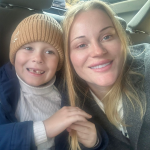
Feedback from Olga, Fedya’s mother Read More
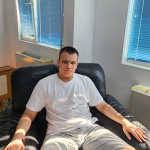
Feedback from Natalia, Radomir’s mother (15 years old) Read More
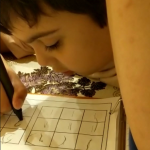
Feedback from Esther, Samuel’s mother (8 years old) Read More
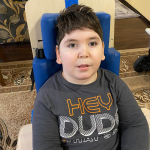
Feedback from Abibe, Selim’s mother (7 years old) Read More
